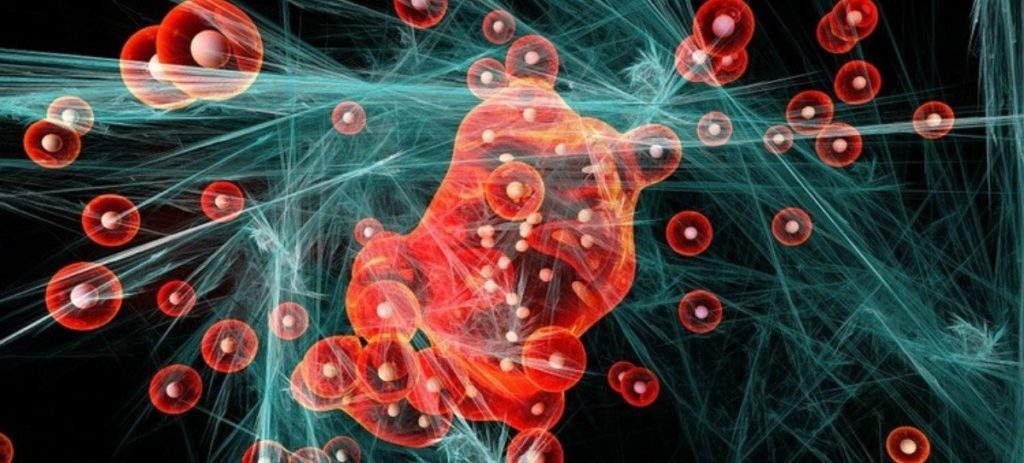The Official Journal of the Society for Tralational Oncology .
The Oncologist first published on May 18, 2017 .
 Shizuoka Cancer Center Hospital, Shizuoka, Japan .
Shizuoka Cancer Center Hospital, Shizuoka, Japan .
Abstract // BACKGROUND :
Trabectedin is reported as effective, especially against translocation-related sarcomas (TRSs) after failure of or intolerance to standard chemotherapy. We conducted two phase II studies of TRS, confirming high efficacy of 1.2 mg/m2 trabectedin. The updated data of 66 patients in these studies was integrated to evaluate the efficacy of trabectedin against each histological subtype, and analyze final overall survival (OS).
...
CONCLUSION:
Our updated and pooled data showed that trabectedin exerted prolonged disease control and antitumor effects in patients with advanced TRS, especially in MRCL. We consider that the subgroup analyses also provide important information for trabectedin treatment in patients with TRS.
IMPLICATIONS FOR PRACTICE:
The progression-free survival (PFS) for the integrated data of 66 patients with translocation-related sarcomas (TRSs) in two phase II studies of trabectedin 1.2 mg/m2 was 5.6 months (95% confidence interval: 4.1-7.3). PFS and response rate in myxoid/round-cell liposarcoma was longer than that of other subtypes. The overall survival (OS) in all TRS subtypes was similar to previous data of TRS patients. In subgroup analysis, the patients with baseline lymphocyte count ≥1,000/μL exhibited better OS, although PFS was not different by baseline lymphocyte count. Our data are considered important information for trabectedin treatment in TRS patients.
© 2017 The Authors The Oncologist published by Wiley Periodicals, Inc. on behalf of AlphaMed Press.
By The ASCO Post // Posted : 5 / 22 / 2017 .
 ... Ongoing Study
... Ongoing Study
Dr. Pollack is conducting ongoing clinical trials combining chemotherapies and checkpoint inhibitors in patients with metastatic or unresectable sarcomas—one focusing on pembrolizumab (Keytruda) and doxorubicin hydrochloride combination treatment and the other studying the combination of avelumab (Bavencio) and trabectedin (Yondelis).
Ultimately, he hopes to expand treatment options for patients with advanced sarcoma, who have an estimated survival of 12 to 18 months.
The Sarcoma Alliance for Research through Collaboration, the Sarcoma Foundation for America, and the Gilman Sarcoma Foundation funded the research.
The content in this post has not been reviewed by the American Society of Clinical Oncology, Inc. (ASCO®) and does not necessarily reflect the ideas and opinions of ASCO®.
...
The Sequencing of Trabectedin with other Agents is also Worth Examining.
 Authors : Ravin Ratan / Shreyaskumar R. Patel .
Authors : Ravin Ratan / Shreyaskumar R. Patel .
Sarcoma (SH Okuno, Section Editor) /// First Online: 22 May 2017 .
Trabectedin and eribulin are two agents that have been recently approved for the treatment of specific soft tissue sarcoma subtypes.
They have proved to be a much-needed line of additional treatment for patients with these rare tumors, but their activity remains admittedly modest in most cases.
Further exploitation of these novel agents is likely to require a more granular understanding of the salient mechanisms of action.
For example, if as some studies suggest, eribulin derives its benefit from restructuring of tumor vasculature to improve efficacy of subsequent lines of therapy, then patients may benefit from its use earlier in the treatment pathway.
The sequencing of trabectedin with other agents is also worth examining. In a disease like myxoid liposarcoma, consideration should be given to using trabectedin before other salvage regimens like gemcitabine and docetaxel, given its tolerability and excellent efficacy against this sarcoma subtype.
 Also, to be further investigated is the use of trabectedin in sarcoma subtypes which were excluded from the phase III study, but in which activity has been documented in earlier trials and subsequent reports. Combinations of trabectedin with other agents, particularly doxorubicin, have been explored, but the data to date do not support the routine use of these regimens.
Also, to be further investigated is the use of trabectedin in sarcoma subtypes which were excluded from the phase III study, but in which activity has been documented in earlier trials and subsequent reports. Combinations of trabectedin with other agents, particularly doxorubicin, have been explored, but the data to date do not support the routine use of these regimens.
**********************
YONDELIS was originally made from sea squirts, or the marine organism Ecteinascidia turbinata. It works by stopping the abnormal multiplication of cancer cells within the body that would otherwise spread, destroying nearby tissues. It does this by binding to and damaging the DNA in cancer cells, causing the cells to die.
 22 MAYO, 2017 .
22 MAYO, 2017 .
Investigadores del Brigham and Women’s Hospital de EE.UU. estudiaban las bases teóricas de la esclerosis múltiple cuando accidentalmente realizaron un importante descubrimiento para el tratamiento de cáncer. El estudio que lo describe ha sido publicado en la revista ‘Science Immunology’.
De acuerdo con Eureka Alert!, los especialistas encontraron un anticuerpo que puede influir en las células T reguladoras para que hagan que el sistema inmune ‘aniquile’ las células cancerosas. Este anticuerpo, según el equipo liderado por el neurólogo Howard Weiner, disminuyó el crecimiento tumoral en los modelos de melanoma, glioblastoma y carcinoma colorrectal, por lo que se estima como promisorio en la inmunoterapia de esta enfermedad mortal.
“Como neurólogo, nunca esperé publicar un artículo sobre la inmunoterapia contra el cáncer”, explica Weiner. “Pero ya que mi equipo estudió una subpoblación de células T que se supone que previenen la enfermedad autoinmune, tuvimos una idea: si el cáncer es lo contrario a una enfermedad autoinmune, podríamos cambiar nuestras investigaciones y pensar en cómo restaurar la capacidad del sistema inmune para prevenir el crecimiento del cáncer”.
Las células T reguladoras pueden, inadvertidamente, promover el crecimiento del cáncer al prevenir que el sistema inmunológico detecte y ataque las células cancerosas, explican los investigadores. Los anticuerpos conocidos como anti-LAP, por su parte, son capaces de bloquear los mecanismos esenciales de las células T y restaurar la capacidad del sistema inmune para luchar contra el cáncer.

